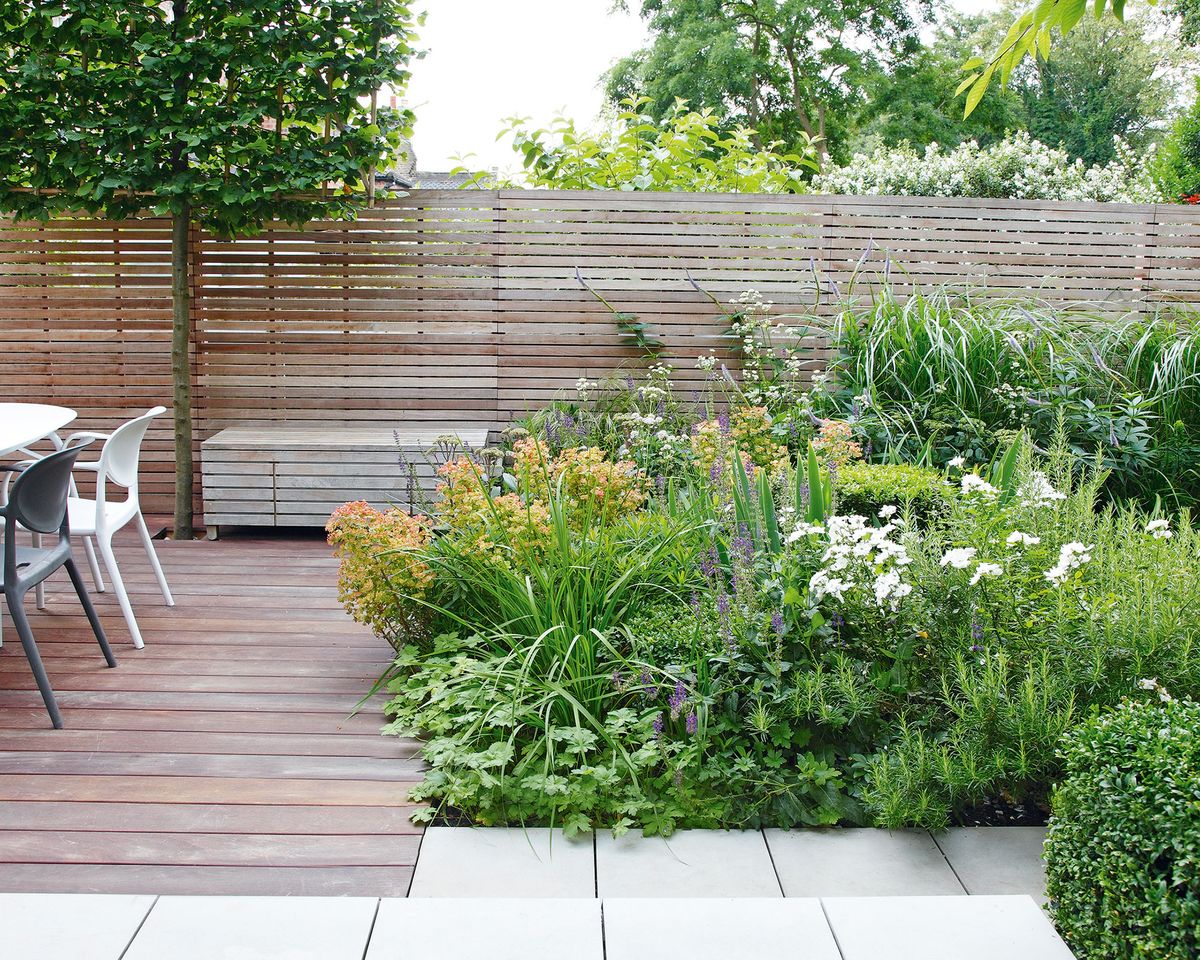Planting around a deck – When it comes to enhancing the beauty and functionality of your outdoor living space, planting around your deck is a surefire way to elevate its aesthetic appeal and create a welcoming ambiance. Whether you’re looking to add privacy, color, or texture, the right plants can transform your deck into an oasis of tranquility and enjoyment.
In this comprehensive guide, we’ll delve into the intricacies of planting around decks, providing you with expert tips and insights to help you make informed decisions and achieve stunning results. From choosing the right plants to designing cohesive arrangements and ensuring proper maintenance, we’ve got you covered.
Choosing Plants for Around Decks: Planting Around A Deck

When selecting plants for planting around decks, it’s essential to consider several factors to ensure their success and visual appeal.
Sun Exposure: Determine the amount of sunlight the area around your deck receives. Some plants thrive in full sun, while others prefer partial shade or even full shade. Choose species that are suited to the specific light conditions of your deck.
Soil Conditions: The type of soil in your yard will also influence plant selection. Consider the drainage, pH level, and fertility of the soil. Amend the soil if necessary to create optimal conditions for the plants you choose.
Desired Aesthetics: Think about the overall look you want to achieve with your deck plantings. Consider the colors, textures, and shapes of the plants you select. Create a cohesive design that complements the style of your deck and outdoor space.
Plant Size and Shape
The size and shape of the plants you choose will depend on the available space and the desired effect. Consider the mature size of the plants and how they will fit into the area around your deck. Taller plants can provide privacy or shade, while smaller plants can add color and interest to the space.
Growth Habits
The growth habit of a plant refers to its overall shape and how it grows. Some plants have a compact, mounding habit, while others are more upright or spreading. Choose plants with growth habits that suit the space and design you have in mind.
Examples of Suitable Plants
Here are a few examples of plants that thrive in different conditions and offer visual appeal:
- Full Sun: Coneflower, Lavender, Yarrow, Daylilies
- Partial Shade: Hostas, Ferns, Astilbe, Coral Bells
- Full Shade: Impatiens, Begonias, Vinca, Hydrangeas
Planning and Designing Plantings
:strip_icc()/landscaping-around-deck-478ac8ef-430a4cb27d1a493db05baf46f5ddcad4.jpg)
Designing and planning plant arrangements around decks requires careful consideration to create a cohesive and visually appealing outdoor space. Here are the steps involved in the planning and design process:
Determining the Desired Style and Function
Begin by determining the desired style and function of the deck and surrounding plantings. Consider the architectural style of the house, the purpose of the deck (e.g., entertaining, relaxing), and personal preferences. Decide whether the plantings should complement the deck’s design or create a contrasting focal point.
Creating a Cohesive Design
To create a cohesive design, consider the scale, texture, and color of the plants. Choose plants that are proportionate to the size of the deck and complement the existing landscape. Use a variety of textures, from fine-leaved groundcovers to bold architectural plants, to add interest and depth. Select a color palette that harmonizes with the deck and surrounding environment, using both foliage and flowers for year-round interest.
Companion Planting, Planting around a deck
Companion planting can enhance plant health and aesthetics by grouping plants that benefit each other. For example, planting nitrogen-fixing legumes near heavy feeders can provide natural fertilization. Companion planting can also improve pest resistance and attract beneficial insects.
Planting and Maintenance
Planting and maintaining plants around decks requires proper techniques to ensure healthy growth and aesthetic appeal. This involves preparing the soil, spacing the plants appropriately, and providing adequate watering.
Soil Preparation
Before planting, prepare the soil by removing any debris or weeds. Amend the soil with organic matter, such as compost or peat moss, to improve drainage and nutrient content. Dig a hole twice the width of the plant’s root ball and just as deep. Place the plant in the hole and backfill with the amended soil, tamping down gently to remove air pockets.
Spacing and Watering
Space the plants according to their mature size to avoid overcrowding. Allow ample room for air circulation and sunlight penetration. Water the plants deeply and regularly, especially during the first growing season. Use a soaker hose or drip irrigation system to deliver water directly to the roots, minimizing water loss through evaporation.
Fertilizing and Pruning
Fertilize the plants according to their specific needs. Use a balanced fertilizer during the growing season and a slow-release fertilizer in the fall. Prune the plants as needed to remove dead or diseased growth, shape the plants, and encourage flowering. Regular maintenance, including deadheading, weeding, and mulching, will promote healthy and attractive plantings.